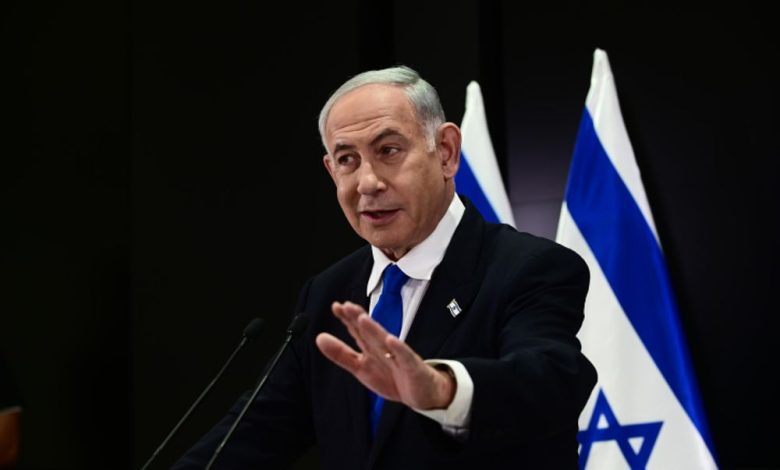Netanyahu indirectly criticizes Saudi Arabia over its deal with Iran

Israeli Prime Minister Benjamin Netanyahu directed veiled criticism at Saudi Arabia for its agreement last month with Iran to resume diplomatic relations under Chinese auspices. He warned of repercussions on Israel, as the criticism comes after efforts to normalize relations with the Kingdom.
Netanyahu referred to the “consequences” of Saudi Arabia re-establishing diplomatic relations with Iran, saying that “those who cooperate with Iran are collaborating with misery,” citing the situations in Lebanon, Yemen, Syria and Iraq.
In an interview with CNBC television on Wednesday, he called for strengthening the US presence in the Middle East to counter threats from Iran.
The US Army had sent a nuclear submarine equipped with Tomahawk missiles to the Middle East, with the rise of Chinese and Russian influence, the confrontation of violations by Iran, and the confirmation of Washington’s stand with the Gulf countries, in the midst of a cooling in relations between the Kingdom and the administration of US President Joe Biden.
According to the network, Netanyahu “warned of the dangers of Saudi Arabia re-establishing relations with its old adversary, Iran, following an agreement mediated by China last month.” In a similar advice to Saudi Arabia, he added, “Those who cooperate with Iran are collaborating with misery. Look at Yemen, Syria, Iraq.”
“Ninety-five percent of the problems in the Middle East come from Iran,” he said.
“On 10 March, Saudi Arabia and Iran announced the resumption of diplomatic relations and the reopening of embassies in two months, following Chinese-sponsored talks in Beijing, according to a joint statement by the three countries.”
According to the American channel, “The détente between Saudi Arabia and Iran dealt a blow to Netanyahu’s diplomatic campaign of pursuing Tehran’s political isolation.”
Regarding the Tehran-Riyadh agreement, Netanyahu told CNN, “I think it probably has to do with a desire to de-escalate or even end the protracted conflict in Yemen. I think the Saudi leadership has no illusions about who their opponents are and who their friends are.”
Israel, like Saudi Arabia, is concerned by threats from Iran and associated armed groups. Likewise, Tehran’s renunciation of its nuclear obligations represents a major challenge to Riyadh, which considers the possession of nuclear weapons by the Islamic Republic a threat to the security of the region.
Despite the easing of tensions in the region and the reduction of threats by leaders of armed groups loyal to Iran against Saudi Arabia and attempts to end the Yemeni crisis, Saudi fears are not over, especially since Tehran has not previously complied with its commitments regarding the security of the region.
Netanyahu sought to normalize relations with Saudi Arabia to promote achievement on the domestic level, especially with the pressures faced by his government. Riyadh, however, rejected this step without settling the Palestinian issue and granting the Palestinians their legitimate rights.












